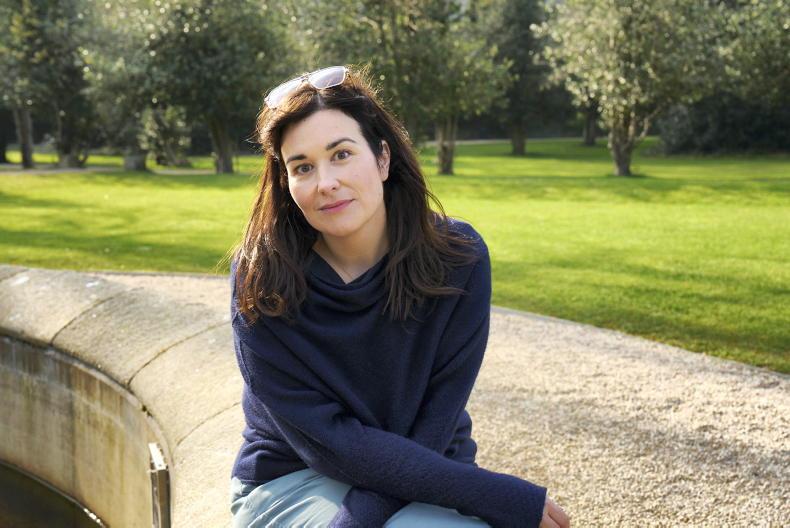As a nation, the Irish have traditionally had a high tolerance for excessive “social” drinking, especially around the festive season. Many of the effects of alcohol misuse remain hidden from sight but are a potential time bomb nonetheless, for the health and well-being of individuals, families and communities.
Can we ask ourselves more openly and honestly how much we are drinking and how it may be affecting our health and vitality (physical, mental, emotional and relationships).
What about the more than 60 medical conditions that excess alcohol increases the risk of? These include heart disease, high blood pressure, irregular heartbeat (atrial fibrillation), stroke, some cancers, fatty liver, obesity, dementia, mental health issues including anxiety, panic attacks, low self-esteem, depression, even suicide as well as emotional volatility and damaged relationships?
Let’s all be really clear about the definition of an alcoholic “drink”. It’s a half pint of beer, a small glass of wine, or one standard measure of spirits.
I find many people just don’t connect with the idea of units or standard drinks
Low-risk drinking is considered to be 17 standard drinks for men or 11 for women spread over the entire week (and not at the one time) with at least two alcohol-free days.
Most “social drinkers” that I encounter in my surgery fall into the clinical “binge drinking” category, and many do not even realise this. Do you?
There is a general consensus that “moderate” alcohol consumption is good for your health or at the very least “not harmful”. And that, as long as you’re not drinking any more than your friends (for whom drink “isn’t a problem”) sure then everything’s grand.
But is it? While one way of looking at alcohol is to talk about the amount, I find many people just don’t connect with the idea of units or standard drinks. What can be far more relevant is the effects it has on you and your wellbeing.
Here are some facts about how alcohol impacts the space between your ears (your brain).
1 Decision-making skills
Firstly, alcohol can damage a particular part of the brain known as the inferior frontal gyrus, which affects inhibitory control and decision-making. Drinking alcohol leads to poor decision making, weaker willpower (more likely to succumb to food and other temptations), while increasing accidents and unintended consequences. “Happy hour” can become unhappy hour quite quickly.
2 Dumb and dumber
The teenage brain undergoes periods of rapid change and is especially susceptible to the effects of alcohol, particularly those areas that deal with learning and memory (the hippocampus) which may shrink irreversibly.
Big boys are affected too. In a published study in the Journal of Neurology, European scientists found that men drinking 2.5 or more alcoholic drinks daily at mid-life were more likely to experience more rapid mental losses over the next decade than lighter or non-drinkers with adverse effects on thinking skills seen as early as age 55.
Alcohol can shrink your brain and raise your risk of dementia (studies also show that people who drink every day have smaller brains than non-drinkers). Furthermore, weekend binge drinking can reduce the white matter pathways across the entire brain.
3 A superficial stress
buster?
Alcohol reduces overall bloodflow and activity in the brain, induces stress and elevates stress hormone levels. While many people reach for a glass of wine or alcohol when they feel stressed, alcohol may actually make feelings of stress worse and impair your ability to cope with stress.
4 Mental health
Feeling anxious in social situations, known as “social anxiety”, can lead people to use alcohol to self medicate and feel more relaxed and comfortable in social situations.
Ironically, while small amounts of alcohol can be relaxing, there is a tipping point where it can lead to significant rebound anxiety in the days following alcohol intake.
In my opinion, informed by what I’ve seen in my surgery over more than 20 years, alcohol is a major cause of anxiety, panic attacks and reactive depression, including suicide. It lowers mood and can significantly impact self-esteem and self-worth.
Isn’t a glass of red wine good for your heart, I hear you asking? Perhaps, but in terms of alcohol, less is more when it comes to your health. According to the Harvard School of Public Health study on the health of alcohol, the heart benefits of alcohol saved 26,000 people per year in America.
On the other hand, according to the Centre for Disease Control excessive alcohol use accounts for 88,000 alcohol-attributable deaths and 2.5m years of life lost each year. In fact alcohol is listed as the eighth most preventable cause of death in America.
The conclusion: alcohol kills far more than it saves in a country where the legal drinking age is 21 and where the culture of episodic binge drinking is incomparable to what exists in Ireland.
Really? OK so that’s totally untrue; in fact alcohol can make you look older for several reasons. These include dehydrating and decreasing moisture from your skin which increases wrinkles.
Dilating blood vessels and capillaries in your skin and depleting levels of Vitamin A, an important antioxidant involved in skin cell regeneration.
Alcohol misuse is very much a family illness
In addition, damage to the liver reduces its ability to remove toxins, resulting in increased levels of toxins in the body and skin that make you look older than you really are.
Alcohol misuse is very much a family illness. When it starts to have a negative impact on a person, it has a ripple effect on the spouse, children and wider family.
It can become the great destroyer, affecting the heart and soul of the family. If you or someone you care about is affected by alcohol, there is plenty of support available. Consider contacting Al-Anon on their confidential helpline (01-873 2699) for support.
Christmas is a time when unresolved family issues can rear their heads, not to mention the stress and financial pressure on many families around this time. Any GP the length and breadth of the country will tell you St Stephen’s Day on call is often their busiest day of the year.
Try keeping a diary of what you are drinking over a couple of weeks
The time has come for us to stop making excuses for excess drinking. I am not anti-drink but I have seen a lot of shattered dreams, relationships destroyed and unfulfilled potential washed away.
If you want to encourage and support your children to have a healthy respect for alcohol, then lead by example. Walk the walk.
Try keeping a diary of what you are drinking over a couple of weeks (and weekends) to get a better handle on the amount. How is it impacting your health and wellbeing, your relationships, your mood, your performance at school, college, work, at home?
Drinking less alcohol may ultimately not only add more time to your life but far more life to your time
So how can cutting down on your alcohol intake improve your health? Well, physically you will have more energy. It will help you to control your weight, blood pressure, blood fat and blood sugar.
Drinking less will improve your mood and mental wellbeing, leaving you less prone to anxiety and depression, improving your sleep and your relationships. Drinking less alcohol may ultimately not only add more time to your life but far more life to your time.
Have a safe and peaceful Christmas.
Dr Mark Rowe, GP, author and life strategist. Follow Dr Mark Rowe on Twitter, Linkedin, FB, Instagram on @drmarkrowe
Read more
Health: winter blues
Blue zone living
As a nation, the Irish have traditionally had a high tolerance for excessive “social” drinking, especially around the festive season. Many of the effects of alcohol misuse remain hidden from sight but are a potential time bomb nonetheless, for the health and well-being of individuals, families and communities.
Can we ask ourselves more openly and honestly how much we are drinking and how it may be affecting our health and vitality (physical, mental, emotional and relationships).
What about the more than 60 medical conditions that excess alcohol increases the risk of? These include heart disease, high blood pressure, irregular heartbeat (atrial fibrillation), stroke, some cancers, fatty liver, obesity, dementia, mental health issues including anxiety, panic attacks, low self-esteem, depression, even suicide as well as emotional volatility and damaged relationships?
Let’s all be really clear about the definition of an alcoholic “drink”. It’s a half pint of beer, a small glass of wine, or one standard measure of spirits.
I find many people just don’t connect with the idea of units or standard drinks
Low-risk drinking is considered to be 17 standard drinks for men or 11 for women spread over the entire week (and not at the one time) with at least two alcohol-free days.
Most “social drinkers” that I encounter in my surgery fall into the clinical “binge drinking” category, and many do not even realise this. Do you?
There is a general consensus that “moderate” alcohol consumption is good for your health or at the very least “not harmful”. And that, as long as you’re not drinking any more than your friends (for whom drink “isn’t a problem”) sure then everything’s grand.
But is it? While one way of looking at alcohol is to talk about the amount, I find many people just don’t connect with the idea of units or standard drinks. What can be far more relevant is the effects it has on you and your wellbeing.
Here are some facts about how alcohol impacts the space between your ears (your brain).
1 Decision-making skills
Firstly, alcohol can damage a particular part of the brain known as the inferior frontal gyrus, which affects inhibitory control and decision-making. Drinking alcohol leads to poor decision making, weaker willpower (more likely to succumb to food and other temptations), while increasing accidents and unintended consequences. “Happy hour” can become unhappy hour quite quickly.
2 Dumb and dumber
The teenage brain undergoes periods of rapid change and is especially susceptible to the effects of alcohol, particularly those areas that deal with learning and memory (the hippocampus) which may shrink irreversibly.
Big boys are affected too. In a published study in the Journal of Neurology, European scientists found that men drinking 2.5 or more alcoholic drinks daily at mid-life were more likely to experience more rapid mental losses over the next decade than lighter or non-drinkers with adverse effects on thinking skills seen as early as age 55.
Alcohol can shrink your brain and raise your risk of dementia (studies also show that people who drink every day have smaller brains than non-drinkers). Furthermore, weekend binge drinking can reduce the white matter pathways across the entire brain.
3 A superficial stress
buster?
Alcohol reduces overall bloodflow and activity in the brain, induces stress and elevates stress hormone levels. While many people reach for a glass of wine or alcohol when they feel stressed, alcohol may actually make feelings of stress worse and impair your ability to cope with stress.
4 Mental health
Feeling anxious in social situations, known as “social anxiety”, can lead people to use alcohol to self medicate and feel more relaxed and comfortable in social situations.
Ironically, while small amounts of alcohol can be relaxing, there is a tipping point where it can lead to significant rebound anxiety in the days following alcohol intake.
In my opinion, informed by what I’ve seen in my surgery over more than 20 years, alcohol is a major cause of anxiety, panic attacks and reactive depression, including suicide. It lowers mood and can significantly impact self-esteem and self-worth.
Isn’t a glass of red wine good for your heart, I hear you asking? Perhaps, but in terms of alcohol, less is more when it comes to your health. According to the Harvard School of Public Health study on the health of alcohol, the heart benefits of alcohol saved 26,000 people per year in America.
On the other hand, according to the Centre for Disease Control excessive alcohol use accounts for 88,000 alcohol-attributable deaths and 2.5m years of life lost each year. In fact alcohol is listed as the eighth most preventable cause of death in America.
The conclusion: alcohol kills far more than it saves in a country where the legal drinking age is 21 and where the culture of episodic binge drinking is incomparable to what exists in Ireland.
Really? OK so that’s totally untrue; in fact alcohol can make you look older for several reasons. These include dehydrating and decreasing moisture from your skin which increases wrinkles.
Dilating blood vessels and capillaries in your skin and depleting levels of Vitamin A, an important antioxidant involved in skin cell regeneration.
Alcohol misuse is very much a family illness
In addition, damage to the liver reduces its ability to remove toxins, resulting in increased levels of toxins in the body and skin that make you look older than you really are.
Alcohol misuse is very much a family illness. When it starts to have a negative impact on a person, it has a ripple effect on the spouse, children and wider family.
It can become the great destroyer, affecting the heart and soul of the family. If you or someone you care about is affected by alcohol, there is plenty of support available. Consider contacting Al-Anon on their confidential helpline (01-873 2699) for support.
Christmas is a time when unresolved family issues can rear their heads, not to mention the stress and financial pressure on many families around this time. Any GP the length and breadth of the country will tell you St Stephen’s Day on call is often their busiest day of the year.
Try keeping a diary of what you are drinking over a couple of weeks
The time has come for us to stop making excuses for excess drinking. I am not anti-drink but I have seen a lot of shattered dreams, relationships destroyed and unfulfilled potential washed away.
If you want to encourage and support your children to have a healthy respect for alcohol, then lead by example. Walk the walk.
Try keeping a diary of what you are drinking over a couple of weeks (and weekends) to get a better handle on the amount. How is it impacting your health and wellbeing, your relationships, your mood, your performance at school, college, work, at home?
Drinking less alcohol may ultimately not only add more time to your life but far more life to your time
So how can cutting down on your alcohol intake improve your health? Well, physically you will have more energy. It will help you to control your weight, blood pressure, blood fat and blood sugar.
Drinking less will improve your mood and mental wellbeing, leaving you less prone to anxiety and depression, improving your sleep and your relationships. Drinking less alcohol may ultimately not only add more time to your life but far more life to your time.
Have a safe and peaceful Christmas.
Dr Mark Rowe, GP, author and life strategist. Follow Dr Mark Rowe on Twitter, Linkedin, FB, Instagram on @drmarkrowe
Read more
Health: winter blues
Blue zone living








SHARING OPTIONS